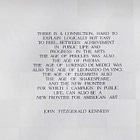What went wrong at the Royal Exchange?
More questions about A Midsummer Night's Dream, an Arthur Miller experiment in Scotland, and the Olivier Award nominations. All that and more in this week's Shouts and Murmurs. Also: get 20% off!
Hello, and welcome to Shouts And Murmurs, a weekly email (mostly) for paid supporters of The Crush Bar, written by me, Fergus Morgan.
Every Tuesday, I round up the best theatre writing elsewhere - news, reviews, interviews, opinions - plus any other interesting or inspiring theatre stuff I find.
At the moment, you can only read the top bit for free, but have to become a paid supporter - it’s £5/month or £50/year, but 20% less this week! - to access the good stuff below the paywall.
Thanks for reading The Crush Bar. If you want to do me a favour, then you can share this newsletter far and wide and encourage others to subscribe via the button below.
Previously in The Crush Bar (and Exeunt):
Over the weekend, to mark the historic collaboration above, both The Crush Bar and Exeunt were offering a flash 20% discount on paid subscriptions.
Now, because three days of discount did not seem enough to mark the significance of the occasion, I am extending that discount for one day more.
Another day. Another destiny. Another chance to help keep this newsletter going, and access various benefits, for just £4/month or £40/year.
Is that the end of that?
Stephen Freeman, chief executive of Manchester’s Royal Exchange Theatre, exchanged having a job for not having one last week, falling on his sword after an independent review into the cancellation of A Midsummer Night’s Dream pointed to “significant systemic organisational and leadership failures” at the venue.
Some context: the show was pulled in September, with the venue sneakily attempting to blame it on “technical issues” at first. It soon emerged – hats off to the Manchester Evening News – that the real reason for the cancellation was due to a row between director Stef O’Driscoll and the theatre’s leadership over the phrases to “trans rights” and “Free Gaza” being inserted into the rave-themed show via a rap. So, yeah, “technical issues” like transphobia and the deaths of nearly 50,000 Palestinians.
O’Driscoll subsequently confirmed this in a statement to The Stage, accusing the theatre’s “executive team” of not providing “proper and rigorous artistic support” and of making decisions “driven by fear”, and further suggesting that the incident “reflects a growing trend of censorship and fear-driven decision-making in the arts.” Oh, and it is probably worth mentioning that the Royal Exchange has been artistic director-less since 2023, when Bryony Shanahan and Roy Alexander Weise stood down in slightly odd circumstances, and the theatre decided to scrap their role altogether and appoint a “creative director.” At the time, some commentators, including myself, thought it could be interesting. Other, wiser heads, probably quite rightly, suspected cost-cutting was the real motivation and warned that something exactly like this would happen.
Anyway, the long-promised independent review was not actually released last week, but the findings and recommendations were published in a statement from the theatre. Although they dismiss O’Driscoll’s accusations of censorship – something Equity has since protested against – they do back up her argument that the theatre was guilty of a “failure to maintain robust support.” It recommended that the theatre focus on “rebuilding creative leadership” and rediscovering its “commitment to artistic innovation and daring.” The Royal Exchange is famous for its in-the-round auditorium. This review, it seems, was something of an in-the-round bollocking.
Is Freeman’s resignation the end of this sorry saga? Perhaps, but a lot of awkward questions remain. There are specific, practical ones concerning the Royal Exchange, like ‘wow, didn’t we get that whole not-having-an-artistic-director thing wrong?’ and ‘what now?’ and ‘who on earth will agree to be our new artistic director?’ and ‘will anyone else hold their hands up and take responsibility for this total shambles?’
Perhaps it is because he is everywhere once again right now, though, but I am inclined to go a bit James Graham and dwell on some of the bigger, thornier questions that this situation raises. Questions like ‘why is expressing support for trans people and Palestinians cause for “legitimate” concern?’ and ‘who gets to decide when a concern is “legitimate” or not?’ and ‘aren’t other theatres going to face similar situations if our zero-sum national conversation continues its toxic slide?’ and ‘hang on, isn’t theatre the perfect place to have these conversations anyway?’ and ‘wouldn’t theatres be bolder and have those conversations if they were less financially stretched?’ and ‘oh, so it all come down to money again?’ and ‘regardless of all this stuff, has putting a rap into a Shakespeare show ever not been lame?’
Actually, James Graham would probably put it a bit more eloquently than that. The point stands, though. Maybe that is the end of this particular chapter at the Royal Exchange, but the conditions that produced this situation remain across the industry, and there is nothing to stop something similar happening somewhere else soon. So, no, I think that is probably not the end of that. In fact, I think it is just the beginning.
In other news: Angela Rayner wants to limit the Theatres Trust’s influence on planning decisions because the government is obsessed with “unleashing” things; James Graham’s Punch is headed to Broadway and Beth Steel’s Till The Stars Come Down is headed to the West End; Clare Slater is leaving HighTide for the NT; everyone should copy Edinburgh and introduce a tourist tax; the Citizens Theatre revealed its reopening plans; there’s going to be a Christmas Carol Goes Wrong; Taio Lawson will be the next AD of the Bush Theatre; Hamilton will not visit the Kennedy Center in Washington in protest over Trump’s takeover of the organisation.





